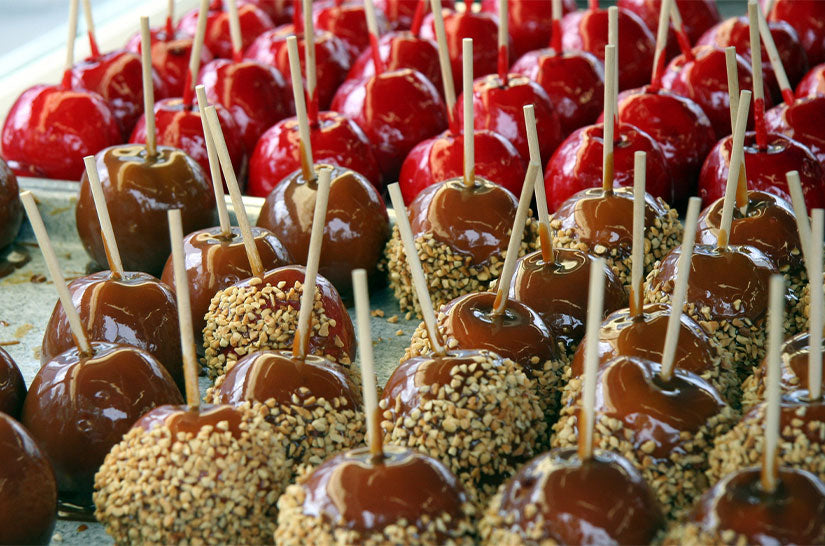
For Better Skin Look to Your Gut
Your gut! It’s such an important factor when it comes to your health. Which is why I’m always talking about it. A sick gut doesn’t just cause digestive upset. It’s also associated with many other health concerns, including skin conditions, and metabolic dysfunctions.
Plus, it’s well known that food allergies can cause skin rashes and hives. And eating foods such as dairy and processed carbs and sugar have been linked to various skin conditions.
The Role of Your Gut Microbiome in Gut Health
Your gut is home to trillions of bacteria. In fact, your body is made up of more bacterial cells than human cells. Isn’t that crazy?! And a healthy gut microbiome is made up of hundreds or even thousands of different bacterial species. Research is continuing to discover new roles that your gut microbiome plays. Some key roles that are well understood include digestion and nutrient absorption, vitamin synthesis, bowel regularity, and the development and workings of your immune system.
When it comes to your immune system, a healthy gut microbiome keeps “bad” bacteria at bay. In your gut as well as on your skin. A thriving gut flora also produces metabolites, byproducts, and neurotransmitters such as linoleic acid, short chain fatty acids, GABA, and serotonin. However, whether or not these products are synthesized relies heavily on the health of your gut flora as well as the foods you eat.
When your microbiome in your gut is out of whack you’ll often notice it in your skin health. You need a healthy and diverse microbiome for optimal health and beautiful skin. In addition you need to be mindful of the things that can cause an imbalance in your gut’s microbiome. Antibiotics, stress, and poor diet are three key factors associated with poor gut health.
Antibiotics
Antibiotics are most detrimental to your gut health While the type of antibiotic used, the length of use, and the dose are all important factors to consider, in general, the use of antibiotics has been shown to decrease concentrations and/or the diversity of beneficial bacteria. And when this happens, pathogenic bacteria, such as C. difficile and candida (a.k.a. yeast) are given the opportunity to flourish.
Stress
Physiological stress has been shown to create conditions within the gut that make it more difficult for beneficial bacteria to thrive and more hospitable for pathogenic bacteria. Short bursts of stress are normal and expected. And the bacterial composition of your microbiome is relatively resilient. However, in today’s society, most people are under chronic stress, which can result in imbalance in your gut microbiome.
Diet
The Western Diet is famous for incorporating high amounts of factory farmed animal foods, refined “vegetable” oils, and processed carbs and sugars. This combination is not conducive to a healthy gut and has been shown to reduce the gut’s total bacterial load. But the research on how different types of fats, proteins, and sugars affect the microbiome is mixed.
However, we do know that the foods associated with the Western diet are common gut irritants, which can ultimately lead to food sensitivities, food intolerances, food allergies, and poor health in general, that in turn can lead to skin problems. What’s more clear is the fact that the Western Diet lacks fiber from a variety of plant-based foods, such as fruits and vegetables. And since fiber (a.k.a. prebiotics) acts as a source of food for the beneficial microbes in your large intestine, diets low in fiber have been shown to negatively affect the gut microbiome.
Fruits and vegetables are also high in phytonutrients known as polyphenols. These compounds are mostly discussed for their antioxidant properties, but they’re also antibacterial. However, when consumed, studies suggest they help boost beneficial bacteria populations while reducing the concentrations of potentially pathogenic bacteria. Plus, fiber is necessary to keep your bowels regular. And good gut motility is essential to a healthy microbiome. It’s also interesting to note that research suggests artificial sweeteners may be more harmful to your gut microbiome than real sugar. In fact, they are believed to promote glucose intolerance due to changes in the intestinal flora.
Nourishing Your Microbiome for Beautiful Skin
- Create a healthy gut environment for your microbiome to flourish. Two of my favorite foods for healing and maintaining optimal gut health are bone broth and hydrolyzed collagen powder. I recommend adding them to your daily diet. However, you should also avoid processed junk and any other foods that cause you distress.
- Feed your microbiome with fiber. This means eating an abundance of fruits and vegetables, which will also provide a good dose of polyphenols and help keep things moving along. Some of my favorite sources of prebiotics are onions, jicama, garlic, asparagus, avocados, dandelion greens, and potatoes with the skin.
- Reduce your load and better manage your stress. You can remove certain stressors by learning to say “no” to some commitments. And practicing stress-relieving activities daily is also a must. Even if it’s just 5 minutes of deep breathing a few times throughout the day. Every bit counts!
- Avoid artificial sweeteners. For healthy skin as well as a handful of other health reasons.
- Eat probiotic rich foods, such as sauerkraut and kimchi. Probiotics are essentially beneficial bacteria that can exert positive effects on your gut as well as your skin as they are passing through. They can also attach and colonize to increase your beneficial bacterial load and diversity as well as crowd out harmful bacteria.
- Make sleep a priority. Because lack of sleep is stressful on the body and mind. Sleep is also when the body, including your gut, undergoes repair and rejuvenation. Plus, when you’re tired, you’re less likely to eat healthy.
In Conclusion
While high quality, natural skincare is an essential component to healthy skin, it’s not the only factor. There is a definite link between the health of your gut, especially your microbiome, and the health of your skin. So if you’re struggling with pesky skin-related issues that aren’t responding to topical solutions, looking inward is always a good idea. And healing your gut is the first step!
P.S. If you're struggling with Psoriasis or Eczema my P&E Protocol can help. Use coupon code P&EBOOK to take 50% off this instant ebook download now.







